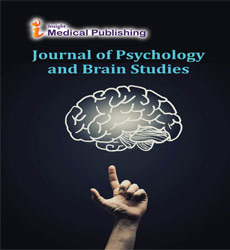The COVID-19 and Correlated Neurological Impairments
Abstract
The Coronavirus Disease 2019 (COVID-19) caught the world by surprise and caused the entire world to respond to this pandemic. Although the nature surrounding the source of this virus remains unclear, there is no question the impact of COVID-19 has affected nations, governments, citizens, and families across the world. Within the United States of America alone, it is estimated that the death total is over 1 million as of June 1, 2022 (Johns Hopkins University and National Public Health Agencies, 2022). However, COVID-19 doesn’t affect everyone the same, and the variability of symptoms can range from person to person. Although many factors may contribute to these results from age to preexisting health concerns, to being vaccinated or not, there are no direct answers to how a person will react to the virus. Consequently, there is a growing body of literature surrounding residual effects associated with COVID-19. In particular, there are neurocognitive impairments post-exposure being reported. According to existing research, neurocognitive impairments reported consist of mental fatigue, memory difficulties, executive function, attention/ concentration/ working memory, information processing speed, receptive language, mood changes, and in cases of ICU admission global deficits. However, there is no clear consensus on the etiology of these cognitive deficits as not everyone reports having residual effects. In this presentation, the author will review the etiology of COVID-19, the course of the virus, direct symptoms of COVID-19, neurocognitive deficits, instruments that can be used to evaluate the impact of these deficits, and possible treatment and recommendations for improving these cognitive deficits.
Open Access Journals
- Aquaculture & Veterinary Science
- Chemistry & Chemical Sciences
- Clinical Sciences
- Engineering
- General Science
- Genetics & Molecular Biology
- Health Care & Nursing
- Immunology & Microbiology
- Materials Science
- Mathematics & Physics
- Medical Sciences
- Neurology & Psychiatry
- Oncology & Cancer Science
- Pharmaceutical Sciences
